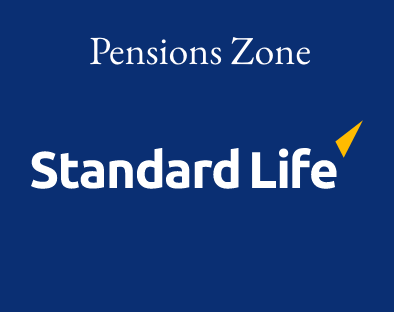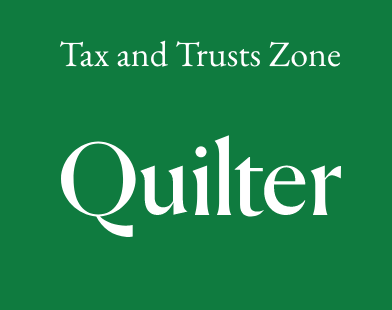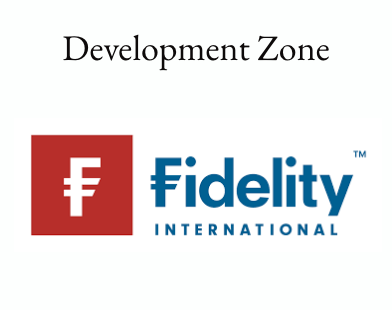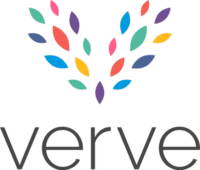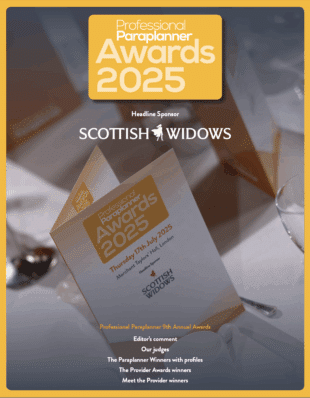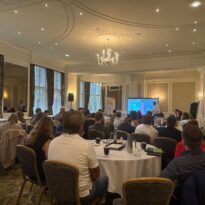With a two-decade long record of running sustainable investment mandates for charities, Castlefield is a partnered owned investment firm which has opened its funds and model portfolios to advice firms. Rob Kingsbury spoke to John Alexander and David Elton about the company’s ethos, ethics and offerings.

John Alexander

David Elton
Manchester based Castlefield has been managing sustainable funds since 2002. Originally running mandates for charities – which it still does – it has since expanded its range, offering three single strategy equity funds, two multi-asset funds and 9 model portfolios for the adviser market. In addition, it acquired two well known ethical/ESG-focussed adviser businesses, GAEIA and Barchester Green.
The company is employee-owned, with around 65 co-owners, of which 13 are focussed on investment. The only external shareholder is a grant-making charitable foundation.
Castlefield badges its funds as sustainable rather than ESG. “I think ESG has become too much of a buzz word in the industry,” says John Alexander, partner and head of client engagement.
“We started with an exclusionary framework, avoiding the areas we didn’t want to invest in. But we extend this to include companies that are taking steps to have a positive impact. So we have a combination of exclusionary and positive themes.”
Castlefield’s commitment to sustainability is rooted in the founding of the company by John Eckersley two decades ago and extends not just to its fund management strategies but to every part of the business, Alexander explains. “Sustainability runs through everything we do, from the coffee we have in the kitchen to the shelving units in the office.”.
While the company has benefited from the recent increased interest in ESG and sustainable investments amongst a wider investment industry, Alexander sees it as a double-edge sword in terms of sustainable investment. “It is great for the industry that many more people are talking about making their money do good and avoiding the damaging sectors of which we are all aware. The challenge is that as ESG has become more popular, competition has increased in the space, which has caused confusion and has made it harder for investors to see the wood from the trees.”
To ensure each investment is sustainable, the investment team operates a selection strategy they term B.E.S.T: business and financial; environmental and ecological; social influence; transparency and governance.
Fully integrated sustainability process
David Elton, manager of the firm’s Sustainable UK Smaller Companies fund, explains that when researching the team always starts from a sustainability/ESG viewpoint.
“We’re not finding opportunities and then running them through an ESG filter,” he says. “The sustainability process is fully integrated from the outset. That is crucial to our approach.”
“We’re not finding opportunities and then running them through an ESG filter. The sustainability process is fully integrated from the outset. That is crucial to our approach.”
Elton’s fund looks at companies with a market valuation of £10m to £1billion, with a growth orientation. “We have between 30-50 listed or AIM quoted holdings and we’re sector agnostic. That gives me a total universe of around 1,200 companies, but around half of that number are ruled out through exclusion,” he explains.
The investment opportunities come from the fact that typically, smaller companies are under researched “and so can be overlooked yet growing businesses,” Elton says.
“Often they are more simplistic businesses that tend to do one thing. This gives us a much clearer line of sight in terms of the impact the company may be having on the world. Also, there are more owner-operated companies in the small cap universe, and so there can be more alignment.
While smaller companies can be seen as riskier as a sector, Elton believes the numbers stack up for small caps over the long term. “We believe there are fantastic opportunities for a long term investor in quality, sustainably focussed UK businesses with good growth prospects at fair valuations,” he says.
To that end, finding the right companies to invest in is via a bottom up approach, he explains. The team is looking for four things:
- Companies that are focussed on solving challenges of sustainability, with clear business models.
- Businesses that are growing over the long term, and where that growth is durable through strong competitive positioning.
- Alignment of interests between owners and company values, and a strong company culture. This can be harder to measure, says Elton, “but because we are dealing with small caps, we are more often getting access to CEOs and CFOs, those making the decisions in the business.” As a partner organisation Castlefield also encourages share ownership across the company not just at the top.
- Attractive entry valuations for the long-term. “We are cognisant of the price we are paying. We are looking for where the company’s earnings power or their quality is not quite understood by the market,” Elton says.
The investment team also likes to work with the management of the companies it holds in the fund. “We like to see the businesses we are invested in and that means getting out on the road. Typically, we will speak to management once to twice a year. They value our input and will come to us for our views on ESG matters as well.”
And the firm has a voting policy it applies to all investments. “We will always look to engage with to companies prior to AGMs where we think it is necessary and to keep abreast of developments. We look to be collaborative but we will vote against or abstain when we need to. But we’d much rather have a conversation in advance.”
Over the past couple of years, the firm also has introduced three key focus questions it asks all companies. For 2023 these are:
- If they have set net zero targets; if not why not, and how are they going to get there?
- How the company has responded to the cost of living, given the added pressures on their workforce.
- How the company assesses board time and capacity.
Castlefield also manages two multi-asset fund of funds, targeting growth and income, and a range of model portfolios – looking to maximise growth, balance income and growth and maximise income. Launched in 2012, as solutions for charity clients, the model portfolios have recently been opened up to the adviser market. Castlefield’s investments are currently on three platforms: Aviva, Transact and Novia.
Summing up, Alexander says: “As a values-based organisation we offer values based investing. This means we put the companies we invest in through a rigorous process in terms of how their business is being run, with layers of questioning and challenge at all stages. This is important and integral to the way we do business.”






